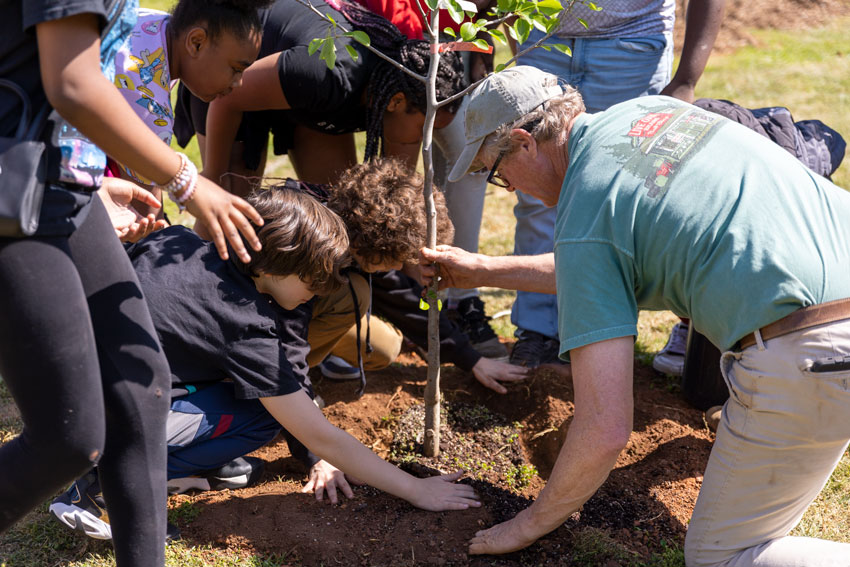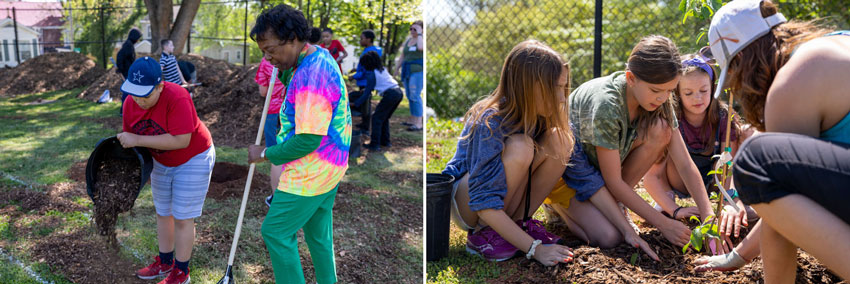
Students at Robert S. Payne Elementary School tested out their green thumbs Wednesday by planting an urban forest garden on campus. Born out of collaboration between Lynchburg City Schools (LCS), the City of Lynchburg, Randolph College, and the University of Lynchburg, the garden will serve as a valuable new installment in the community.
R. S. Payne Elementary graduate and Randolph environmental science student Eva Pontius Hey designed the garden as part of her senior thesis. This project represents a way to give back to the LCS community that shaped her from elementary school through graduation. It emerged out of collaborative work by Dr. Karin Warren (Randolph College), Dr. Laura Henry-Stone (University of Lynchburg), and Dr. Lisa Powell (Sweet Briar College) on urban heat islands and climate resilience.
R. S. Payne Elementary is in a food desert, where local residents do not have adequate access to healthy foods within a reasonable distance. According to 2021 findings from the Virginia Foundation of Independent Colleges’ Virginia Heat Watch project, it is also located in an “urban heat island,” a neighborhood with higher temperatures than others. Designed using permaculture principles, the garden will pilot food and climate resilience strategies that could eventually be implemented throughout the city.
Randolph environmental science student Eva Pontius Hey designed the garden as part of her senior thesis. This project emerged out of collaborative work by Dr. Karin Warren (Randolph College), Dr. Laura Henry-Stone (University of Lynchburg), and Dr. Lisa Powell (Sweet Briar College) on urban heat islands and climate resilience.
The forest garden will include benches, trellises, a book walk integrated with the school’s literacy goals, and fruit trees and bushes for students and local residents to eat when ripe. As the saplings planted today grow, R. S. Payne students, staff, and community members will eagerly watch the garden’s transformation through the seasons.


